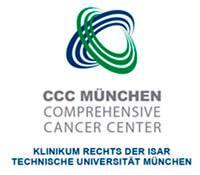Itsenko-Cushing's syndrome is a neuroendocrine disorder caused by the increased production of adrenocorticotropic hormone (ACTH) by the pituitary gland. ACTH stimulates the adrenal glands. As a result, they produce too much cortisol, disrupting metabolic processes. Although the term Itsenko-Cushing's disease is used in the medical literature of Russian-speaking countries. In Europe, this pathology is called Cushing's disease.
Itsenko-Cushing's syndrome is a term that differs significantly in Russian and other literature. In the countries of the post-Soviet space, this term means a benign adrenal tumor that produces cortisol. At the same time, in Europe, Cushing's syndrome refers to any manifestation of hypercortisolism, that is, increased production of cortisol of any origin, if it leads to metabolic disorders and clinical symptoms.
Both diseases can be successfully treated. A timely surgical intervention or radiation therapy allows the patient to get rid of hormonal disorders. Doctors in Germany perform operations using minimally invasive techniques: surgical interventions on the pituitary gland are performed through the nose instead of a traumatic transcranial (with craniotomy) surgical approach. Operations on the adrenal glands are performed laparoscopically.
Content
- Surgical treatment
- Drug therapy
- Recurrence treatment
The basis of treatment is a minimally invasive surgical removal of the tumor. If surgery is contraindicated, then radiation therapy is performed to suppress the hormonal activity of the pituitary tumor. In severe cases of hypercortisolism, doctors resort to adrenalectomy – adrenal gland removal.
You can undergo treatment in the following hospitals: University Hospital of Ludwig Maximilian University of Munich, Hospital Neuperlach Munich, University Hospital Carl Gustav Carus Dresden.
Please leave your request with medical records on the Booking Health website, and the company will fully arrange your trip. Our medical advisor will recommend the clinic and the optimal treatment, while travel managers will take care of all organizational issues. They will help you apply for a visa and get to the clinic, provide insurance against complications during treatment, and provide interpreting services. You can contact your personal coordinator for any questions.
Surgical treatment
A surgical technique is used as first-line therapy for Itsenko-Cushing's disease. The operation is aimed at removing the organ responsible for the increased production of glucocorticoids.
Endoscopic transnasal adenomectomy is a minimally invasive removal of a pituitary tumor through the nose. The operation is effective in at least 65% of cases, and if performed in a specialized center in Germany, then the efficiency reaches 90%. The disease is completely cured and never recurs. At the same time, the hormone-producing function of the pituitary gland is preserved. The effect after the operation does not develop immediately. Under the influence of ACTH, the adrenal glands work harder and their hyperplasia (enlargement) occurs. The final outcomes of the operation to reduce cortisol production are achieved only after 3-6 months. Other patients instead have insufficient cortisol production and receive glucocorticoid replacement therapy for some time.
Bilateral adrenalectomy is the removal of both adrenal glands. It is used in severe cases when, due to the severity of the patient's condition, doctors do not have time to expect a decrease in cortisol production after pituitary tumor removal. This operation is indicated if the cortisol levels in the daily urine exceeds the norm by 10 times or more and in the development of life-threatening complications. In Germany, the operation is performed using a minimally invasive laparoscopic technique.
Radiation therapy is an alternative to neurosurgery. Instead of removing part of the pituitary gland, it is targeted with radiation. Various techniques can be used: stereotactic radiation therapy, radiosurgery, and brachytherapy. In Germany, irradiation methods are very precise: they ensure the destruction of the pituitary adenoma with minimal risk of developing complications caused by irradiation of the surrounding tissues. However, radiation therapy is not considered first-line therapy. It is carried out if the operation is contraindicated or is not effective enough.
Outdated methods of radiation therapy lead to the development of panhypopituitarism, which is pituitary hormone deficiency. The incidence of this complication reaches 90%. Clinics in Germany use new methods of MRI-guided irradiation. At the same time, the radiation dose decreases, and the symptoms of hypercortisolism disappear more slowly, but the risk of developing pituitary insufficiency is reduced to a minimum.
Drug therapy
If surgery cannot be performed, conservative treatment becomes an option. Pasireotide, a multiligand analog of somatostatin, is considered the main drug.
While waiting for a neurosurgical operation, conservative treatment with steroidogenesis blockers can be carried out.
Drugs are also required to alleviate the symptoms of the disease and prevent its complications. Patients with hypercortisolism have an increased risk of developing cardiovascular pathologies. They need antihypertensive (lowering blood pressure) therapy and the intake of drugs to adjust cholesterol levels and blood clotting. Many patients develop metabolic syndrome requiring hypoglycemic therapy.
Recurrence treatment
Some patients may have a relapse of the disease after treatment. The risk of recurrence is highest in the first 10 years after neurosurgery. The following treatment options can be used in case of recurrence:
- Revision surgery for pituitary tumor removal
- Adrenal gland removal
- Radiation therapy for pituitary tumor suppression
- Drug therapy
To successfully undergo the diagnostics, treatment of Cushing's disease in Germany and rehabilitation, you are welcome to use the Booking Health services. The company's website provides real prices at which one can immediately book the desired medical care program. You can find out the cost of treatment in different clinics in Germany. Due to the absence of additional coefficients for foreign patients, the price will be lower for you than for most medical tourists. The Booking Health specialists will select the best clinic for you and arrange your trip to Germany.
Authors:
The article was edited by medical experts, board certified doctors Dr. Vadim Zhiliuk and Dr. Sergey Pashchenko. For the treatment of the conditions referred to in the article, you must consult a doctor; the information in the article is not intended for self-medication!
Sources:
Centers for Disease Control and Prevention
Medical News Today
The Lancet
















